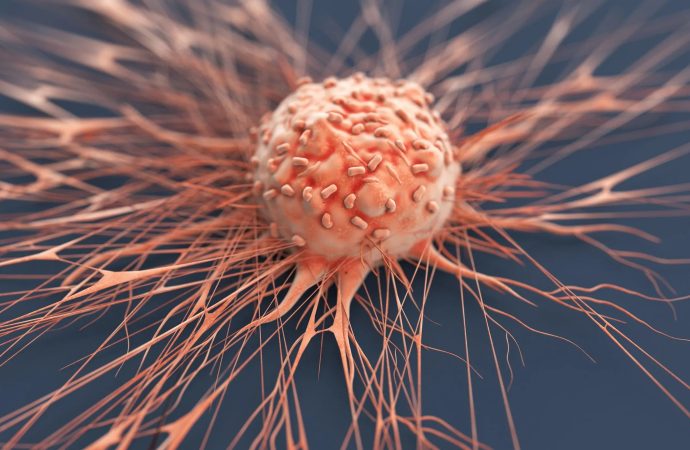Introduction Cancer, a multifaceted and pervasive disease, manifests in more than 100 diverse types, each rooted in specific cell origins within the body. This comprehensive article aims to unravel the intricate classifications of cancer, shed light on common types prevalent in the UK, and delve into the crucial aspects surrounding tumors. Unveiling the Rich Tapestry
Introduction
Cancer, a multifaceted and pervasive disease, manifests in more than 100 diverse types, each rooted in specific cell origins within the body. This comprehensive article aims to unravel the intricate classifications of cancer, shed light on common types prevalent in the UK, and delve into the crucial aspects surrounding tumors.

Image by: cdn.the-scientist.com
Unveiling the Rich Tapestry of Cancer Types
What are the Different Types of Cancer?
The vast array of cancer types, exceeding 100, is characterized by the specific cells from which they originate. Among these, three primary categories emerge – carcinomas, sarcomas, and leukaemias/lymphomas.
– Carcinomas
Carcinomas, a prevalent type, arise from cells lining body surfaces or gland linings, encompassing areas like the skin, gut, mouth, cervix, and airways.
– Sarcomas
Sarcomas, less common but equally significant, originate from cells constituting connective tissues, including bones or muscles. A notable example is osteosarcoma, a cancer affecting bone tissue.
– Leukaemias and Lymphomas
These cancers pertain to cells in bone marrow and lymph glands, with leukemia representing a cancer of cells responsible for white blood cell production.

Image by: verywellhealth.com
Common Types of Cancer in the UK
While Breast Cancer, Lung Cancer, Prostate Cancer, Bowel Cancer, and Skin Cancer rank as the most prevalent in the UK, a myriad of other types demands attention. The list includes but is not limited to:
- Bladder Cancer
- Brain Cancer and Brain Tumours
- Cervical Cancer
- Kidney Cancer
- Ovarian Cancer
- Pancreatic Cancer
- Testicular Cancer
- Thyroid Cancer
This diversity underscores the need for a comprehensive understanding of the various cancer types prevalent in society.

Image by: images.ctfassets.net
Understanding the Nuances of Tumors
What are Tumours?
Tumors, the hallmark of cancer, embody abnormal tissue growths. Two primary distinctions, benign and malignant, characterize these growths.
– Non-cancerous (Benign) Tumours
Benign tumors, though non-life-threatening, may present challenges. Typically slow-growing and non-invasive, they may cause local pressure symptoms or, in some cases, secrete excess hormones, leading to unwanted effects.
– Cancerous (Malignant) Tumours
Malignant tumors, in contrast, exhibit rapid growth, invasion into nearby tissues, and the potential to spread. Originating from a primary site, these tumors may disseminate to other parts of the body, forming secondary tumors (metastases). It’s noteworthy that not all cancers form solid tumors; for instance, leukemia involves the abnormal production of blood cells in the bone marrow.

Image by: engineering.cornell.edu
Navigating Early Cancer Stages: Carcinoma in Situ
What is Carcinoma in Situ?
Carcinoma in situ represents the early stage of cancer where abnormal cells are confined to their original site. At this juncture, no tumor has formed, and cancer cells haven’t spread. This dormant phase may persist for months or even years before the onset of active growth and spread.
Detection of carcinoma in situ is possible through screening tests, offering a window for intervention and preventive measures. Notably, these early-stage cells often lack the ability to stimulate new blood vessels, a critical factor in impeding cancer growth and spread.
Conclusion
In the labyrinth of cancer diversity, understanding various types, tumor characteristics, and early stages like carcinoma in situ is paramount. This knowledge empowers individuals to make informed healthcare decisions, fostering proactive preventive measures. It is imperative, however, to seek personalized advice and guidance from medical professionals for tailored insights and recommendations
Navigating the intricate landscape of cancer involves comprehending the vast array of types, tumor characteristics, and early stages. From carcinomas to sarcomas, benign to malignant tumors, and the crucial concept of carcinoma in situ, this comprehensive exploration equips individuals with valuable insights. Awareness of common cancer types in the UK underscores the need for a proactive approach to healthcare. Remember, while this article provides foundational knowledge, consulting with healthcare professionals ensures personalized guidance for informed decisions.





















Leave a Comment
Your email address will not be published. Required fields are marked with *